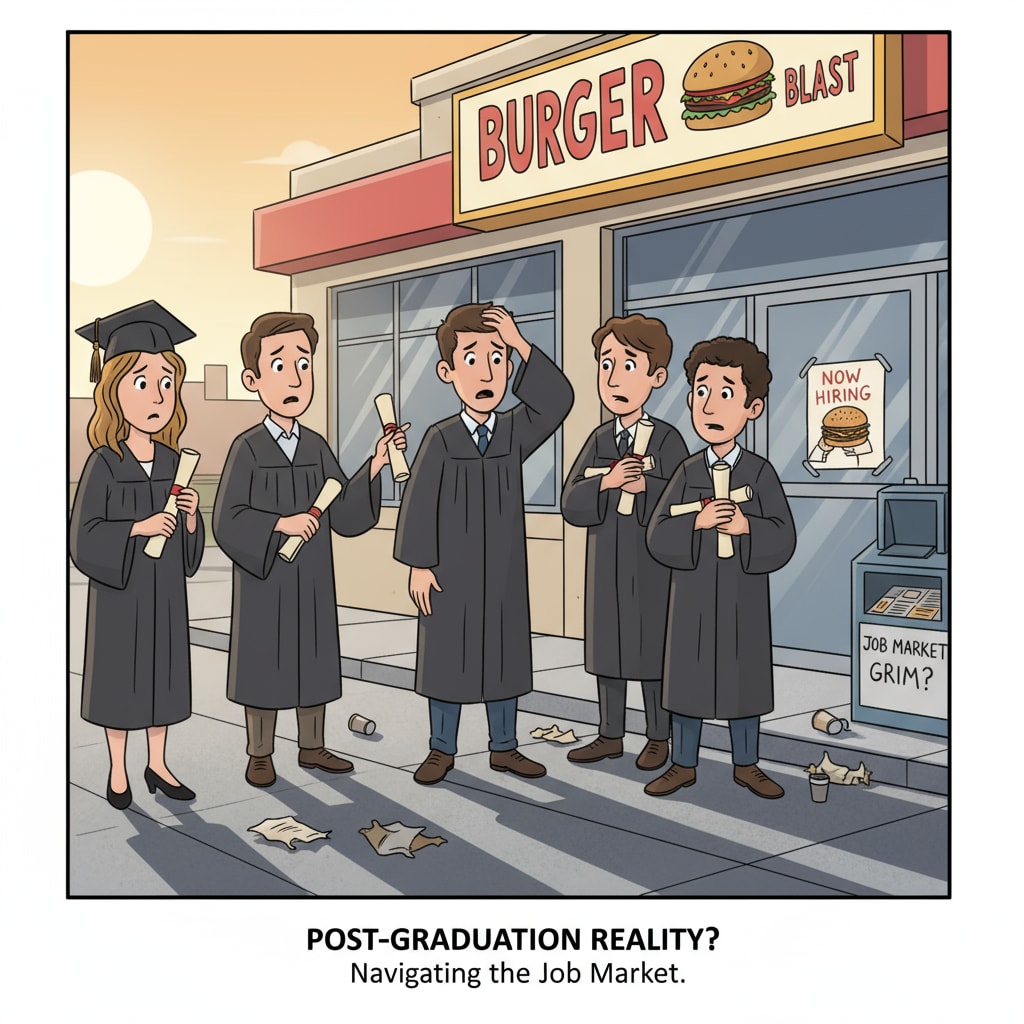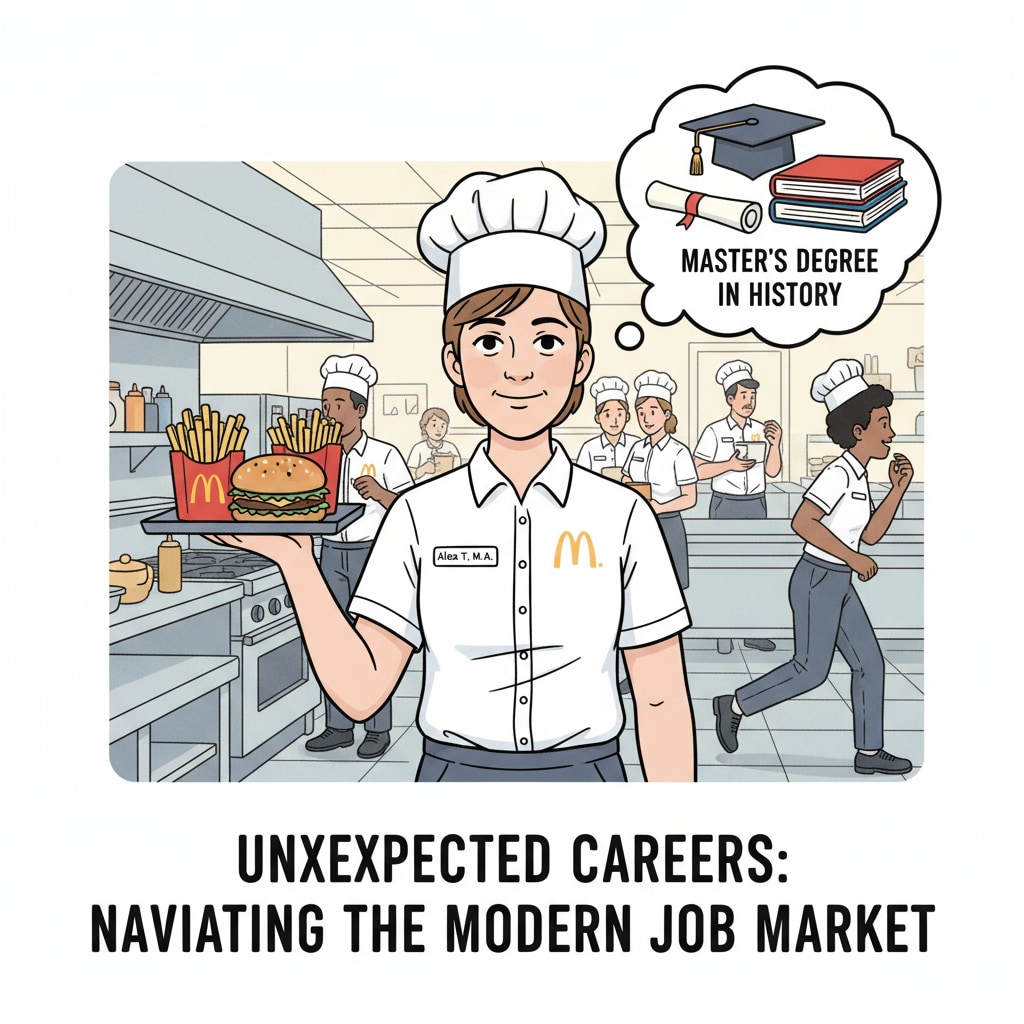University degrees, job market, and career development are intertwined aspects of the modern educational and professional landscape. In recent times, an unsettling trend has emerged – a significant value gap between the attainment of a higher education degree and the corresponding employment prospects. This issue has far-reaching implications, not only for individuals who have invested time and resources into their education but also for the overall health of the job market and the future of career development. For instance, in the fast-food industry, we are witnessing a scenario where highly educated individuals, even those with master’s degrees, are taking on roles like restaurant managers. This phenomenon forces us to reevaluate the current educational and career paradigms.

The Surprising Reality in the Fast-Food Industry
The fast-food industry has long been seen as a place for entry-level jobs, often requiring minimal education. However, in recent years, there has been an influx of highly educated individuals. Many with bachelor’s or even master’s degrees are finding themselves in positions such as fast-food restaurant managers. This situation is a clear indication of the misalignment between the expectations associated with a higher education degree and the actual job opportunities available. According to Bureau of Labor Statistics data, the job requirements in the fast-food sector have not significantly changed to match the skills and knowledge acquired through higher education.

The K12 Education System: Time for a Rethink?
The K12 education system plays a crucial role in shaping students’ future career paths. It has traditionally emphasized a linear path to success – excelling in academics, getting into a good college, and obtaining a degree to secure a well-paying job. However, the current situation of high-educated individuals in unexpected job roles suggests that this model may need reevaluation. We should consider providing students with more diverse career development options from an early age. Instead of solely focusing on college preparation, K12 education could incorporate vocational training, entrepreneurship education, and exposure to a wide range of industries. This way, students would be better equipped to make informed decisions about their future and be more adaptable to the changing job market.
The value gap between higher education degrees and actual employment prospects is a complex issue that demands attention. The K12 education system needs to adapt to provide students with a broader range of career choices. By doing so, we can better align educational investments with meaningful career development opportunities. This will not only benefit individuals but also contribute to a more vibrant and efficient job market. Readability guidance: The paragraphs are kept short to enhance readability. Key points are presented clearly, and external sources are used to support arguments. Transition words like ‘however’ and ‘instead’ are employed to make the flow smooth.


